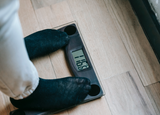Entering the job market in 2021 is different to any other year.
It is an unprecedented time for the country and the NHS, and the workforce has been forced to become even more resilient in order to adapt and overcome.
First of all - well done for sticking through your studies through such a difficult time! 💪👏
You’ve all been working hard as well as your educators and teachers in making sure your learning continues. The CSP, HCPC and Universities also have had to navigate in uncharted territories.
Going through a degree and becoming a registered physiotherapist or healthcare professional when the healthcare system is under such immense pressure, for sure is one hell of a challenge.
Educators who normally would have been offering plenty of placement opportunities may have not been able to this past year. This is why you’ve probably seen increased flexibility in practice-based learning during your degree, and how you’ve been able to meet your 1000-hour requirement for graduation.
We’ve seen students doing their clinical hours in less traditional placements such as in QI or in project leading areas. Most of you have experienced technology with seeing patients over virtual platforms or simply studying from home. Some of the students we have worked with in 2020 even had their only MSK experience as a virtual placement. You may have also been helping on the frontline, sometimes even on COVID wards, in one capacity or another...
Lots of those changes were going to happen anyway. The profession is moving towards a more digital, more virtual era. We’re also moving towards rehabbing patients away from the hospital, within the community, and become more all-rounder, versatile therapists - away from those "core" areas of physiotherapy. Our future patients will be increasingly complex, with multiple problems and conditions. So, in a way, Covid gave the profession an extra push in the direction it was already going. And those skills you've gained over the last year will be seen as super valuable to any employer out there!

Opportunities and benefits
There have been lots of opportunities to build on from what happened over the last year. The breadth of skills that physio students need to develop should not be limited to face to face hands on skills. Less traditional placement opportunities have helped students build wider communication skills, leadership, research skills - all great transferable skills that will help you develop into a more forward-thinking, resilient and versatile physiotherapist. Skills a junior physio from a few years ago may not have possess when entering the job market!
In fact, many students we worked with in 2020 reported being able to focus more on their subjective questioning, differential diagnoses and clinical reasoning skills. You may not have done an MSK placement but may have picked up MSK skills on a neuro or community placement for instance. You may have learned the investigatory type of questioning needed to do a subjective assessment while leading a project instead of face-to-face with a patient!
So don’t worry if you feel you haven’t had all your “core” placements and don't think like your skills are on par with that person specification you're reading. You'll have developed lots of other transferrable skills that will look very appealing to the employer. It's a matter of realising this, making a note of them, and find your Unique Selling Point. What makes you different to another junior physio?
And remember - graduation is just the beginning of your learning journey, lots will be learned from your first role onwards! There will be a preceptorship programme, there will be induction and IST, specifically for newly grads. Once you start working, if you feel there’s something you’ve been asked to do is outside of your scope of practice, be sure to openly communicate this so this can be organised. We often hear about students being scared about going on-call with no acute experience. Take the initiative to tell your senior and seek training opportunities during your rotation, such as doing joint sessions with senior therapists.
You can still nail the interview process!
With interviews you have to touch on your experiences from online learning on how it will strengthen you as a clinician. You will need to find your USP and showcase it. Educators will be more mindful of your student experience and previous placement experience, so do not worry if you feel like you are lacking some skills - more often than not, you have learned the basics and that's all you need when going into a junior position.
Personal Statement:
Still use the "mirror the job spec technique" when you can. However, try and think about your USP, that you may be able to draw from less traditional ways. Still do as much research about the trust or hospital! You will definitely get your interviewer's attention if you are able to write about specific research projects or specific developments the Trust is focusing on now or in their laid out 5 year plan (think services affected by COVID19, or meeting new service user's needs such as long term covid etc)
In your application, you can add more personal stuff that may not be relevant in the main bit of your supportive information, but that might draw the interviewer in, in the "additional info" section.
Job Description:
You will have the basics. But you may not have had done assessments for every condition and in every speciality. Think about the skills that you do have developed over the last year, such as communications and relationships, analytical and judgement skills, planning and organisational skills. Such as the projects you’ve been involved in. Beforehand, students were not necessarily getting involved in these things. These things and skills will make you a better physio.
Reflect on past experiences to find transferable and unique skills:
Don’t think "I didn’t have a acute respiratory placement", but more “I've been involved in a QI project and can bring leadership skills another candidate may not be able to”. Your clinical skills can always be taught on rotations, but the experiences and transferable skills you may have had on less traditional placements will be very valuable to an employer. Use the STAR technique (Situation, Task, Action, Result) to describe things you experienced and learned from.
CPD Portfolio:
If you can share your CPD portfolio on screen, that’s a good way of showing your understanding of the CPD process. Usually your interviewer will not ask you to send them your portfolio, but as an autonomous practitioner, you need to show your understanding of CPD in the interview. So sharing a few pages on screen might help you do that. Make sure you have a few examples to talk about and how you've learned from them and adapted your practice as a result.
______
There are definite challenges when transitioning from student to newly-qualified physiotherapist in the midst of COVID, but also lots of great opportunities to be involved in leading the change the profession has been needing for a while now.
We need an extra 23000 HCPs, including 5000 physios by 2023. Don't worry, there will be your spot in there!



![[2022] Band 5 / Junior MSK Physiotherapy interview question & its answer explained](http://qualifiedphysio.co.uk/cdn/shop/articles/pexels-andrea-piacquadio-3756042_compact.jpg?v=1641201968)